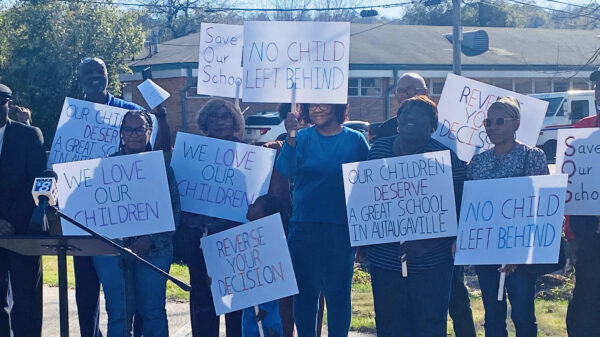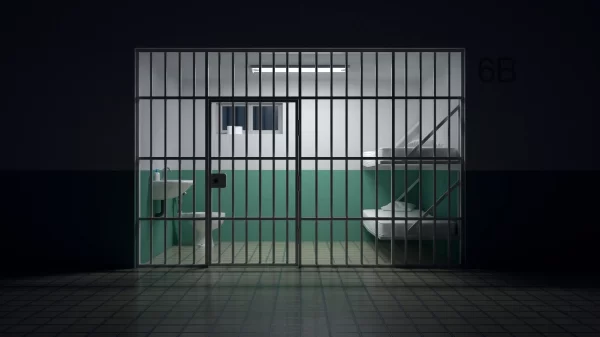|
Getting your Trinity Audio player ready...
|
Thursday morning, Autauga County Sheriff Mark Harrell announced in a press release posted to the Autauga County Sheriff Department’s Facebook page that he had evacuated the Autauga County Metro Jail. Inmates were relocated to unidentified facilities where the sheriff’s department had “worked out the logistics with several agencies.”
The press release was also vague about Harrell’s reasons, only pointing to nonspecific potential health risks for the jail’s inmates that Harrell felt were unacceptable. “I have a moral obligation for the safety, health and security of all individuals who come through the doors of the Autauga County Metro Jail, whether it’s my staff, Law Enforcement Officers or inmates,” Harrell wrote.
However, reporters with the Elmore-Autauga News were able to confirm that the chief problem was black mold.
Harrell also said in his statement that the Autauga County Commission needs to act: “It will be up to the County Commission to properly and adequately fix the issues to prevent health and safety issues before I, as the Sheriff of Autauga County, will place another individual in the jail.”
All media requests sent to the sheriff’s office were redirected to the County Commission.
In a written statement, Autauga County Administrator Scott Kramer said that the “County Commission is aware of certain facility issues at the Autauga County Metro Jail.”
“We have been working diligently, and in good faith, with Sheriff Harrell and his staff to address their important concerns,” Kramer stated. “We will continue to do so and ask him and his staff to do the same.”
While it appears likely that the conditions in the Autauga County Metro Jail may be addressed in the coming weeks and months due to Harrell’s actions, Alabama’s jails and prisons have been widely criticized for years.
In 2020, the U.S. Department of Justice sued the state, saying that “Alabama fails to provide adequate protection from prisoner-on-prisoner violence and prisoner-on-prisoner sexual abuse, fails to provide safe and sanitary conditions, and subjects prisoners to excessive force at the hands of prison staff.”
Alabama also had the 11th highest incarceration rate in the United States in 2022, with 390 people incarcerated per 100,000 state residents or just under 10 percent higher than the national rate. Parole rates have fallen significantly in recent years as well, leading to more people serving their full sentence.
Reforms meant to reduce Alabama’s incarceration rate and ease the burden on the state’s jails and prisons, like allowing judges to issue split sentences, have consistently floundered in the state legislature. Instead, the focus has been on building so-called “mega-prisons,” complexes that cost hundreds of millions to build and that could house thousand prisoners.
In 2020, Gov. Ivey prefaced announcing the developers working on the mega-prisons by saying that “we must rebuild Alabama’s correctional system from the ground up to improve safety for our state’s correctional staff and inmate population.”
But without significant reform, and with the mega-prisons still a ways out, Alabama prisoners still report rampant disease, insufficient medical care, cruel treatment by prison staff, and crumbling infrastructure.



















































